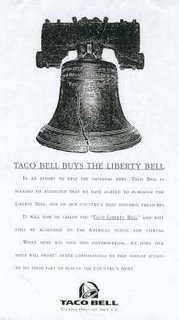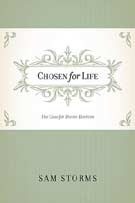 Author: Graeme Goldsworthy
Author: Graeme Goldsworthy
Publisher: IVP
ISBN: 0830828397
Hardcover, 341 pages, bibliography and indexes
In Gospel-Centered Hermeneutics, Graeme Goldsworthy takes to the platform, wags a revival-preacher’s finger at a tent-full of interpretive theorists, and shouts, “Your hermeneutics need to get saved!” Turning aside, he shakes a fist at the ground given up by evangelicals to secular theories of communication and interpretation. For a moment, he gives a nod of recognition to non-Christian postulations in those areas, noting that they often make valuable contributions. But soon he rises to the climax of his sermon: there is, and should be, a distinctively evangelical hermeneutic in regard to Scripture, and it is unashamedly gospel-based.
The title of the book’s introduction–“Can Hermeneutics Be Saved?”—is an intentional pun. On the one hand, Goldsworthy places the science of hermeneutics on the endangered species list, the result of binging on too many philosophical dead ends. On the other hand, he is quite literal about the word “saved” in a sort of ordo salutis of interpretation: “[T]he grace of God acting for us, is prior to, and is the source of, the action of God in us…This theological perspective also applies to hermeneutics. Our ability to interpret Scripture must be saved, justified, and sanctified through the gospel” (p. 16, emphasis added).
He goes on to argue that “the need to specify a gospel-centered, evangelical approach to hermeneutics arises from the distinctive beliefs of evangelicalism” (pp. 18-19). When Goldsworthy says “distinctive,” he is clear that he has the solas of the Reformation in mind. First and foremost, though, he insists that an evangelical hermeneutic is one that presupposes a regenerate mind interacting with Scripture. Evangelical hermeneutics has some common ground with secular hermeneutics because of common grace, but believers are to think with “transformed minds” (Rom. 12:1-2) and so should not let secular approaches dictate the agenda.
Goldsworthy positions himself throughout Gospel-Centered Hermeneutics as an unrepentant Van Tillian presuppositionalist. His operating presuppositions are the Reformation solas, as well as christocentrism (Christ as the ultimate aim and interpretive center of all of the Bible). Additionally, he maintains that Christians should never separate theology from hermeneutics, particularly biblical theology. Biblical theology reveals the consequences of human sin, consequences that cause humans to fail in the hermeneutical task. Therefore salvation in Christ is the only hope for the salvation of hermeneutics.
In the middle section of his book, Goldsworthy gives an overview of the philosophical trends in each era of church history that he thinks have tended to “eclipse” the gospel and therefore a truly gospel-centered hermeneutic. He intentionally chooses the term eclipse, noting that no eclipse is completely total; there have been valuable contributions in each of these schools of thought as well. However, these eclipsing paradigms are the blocks that must be cleared in order for a truly evangelical hermeneutic to emerge.
The final part of Gospel-Centered Hermeneutics details Goldsworthy’s conception of what such a hermeneutic would look like. He rejects the fideism of both early church mysticism and later existential theology as well as the empiricism of both Thomistic and Enlightenment approaches. Instead he favors Calvin’s call to reason in biblical categories, best expressed in the opening chapter of his Institutes. Rather than beginning as Thomas did with Aristotelian categories, Calvin insists that biblical reasoning must start with a full recognition of the fallenness of humans. While truth about God is evident in nature, our sin keeps us from recognizing that truth and rightly interpreting it. Therefore, we need the special revelation of Scripture read with a redeemed mind. Moreover, Reformation teaching maintains the bond between Word and Spirit; the authority of the Word comes from God (not the church or personal experience), and he is faithful by his Spirit to bring understanding to his people.
The remainder of the third part explores the implications of the gospel in a number of relevant areas: literary, historical, theological, and contextual. Finally, Goldsworthy explicates what it means to have Christ, in all that he is and has done, as the center of our hermeneutics. In keeping with his conviction expressed throughout that the Bible is a book for all Christians, not just theologians, the author ends with practical suggestions for reading and studying our Bibles.
Gospel-Centered Hermeneutics is a clarion call for those who believe that the Bible is the word of God to interpret it like it is the word of God. It is chock full of insights useful to any thoughtful believer who wants to be able to read his or her Bible Christianly. Goldsworthy is to be particularly commended for his clear demonstration that a robust and believing biblical theology provides a solid foundation for knowing how to approach the Bible. - Mark Traphagen, Westminster Bookstore Staff, March 2007
Other endorsements:
“The focus of Gospel-Centered Hermeneutics is not word studies but Word study: a sustained reflection on the priority and centrality of the good news concerning Jesus Christ as the distinct way that Scripture interprets Scripture and, indeed, all of reality. Goldsworthy’s attention to the role of biblical theology in biblical interpretation is particularly welcome, providing a refreshing contrast to what often gets produced by the contemporary hermeneutics industry. And by highlighting the gospel of Jesus Christ, he puts the evangel back into evangelical hermeneutics.” — Kevin J. Vanhoozer, Trinity Evangelical Divinity School
“Graeme Goldsworthy is widely known as a master interpreter of biblical texts. In particular, his studies have enriched the thought of many students of the Bible and informed the sermons of countless ministers. How wonderful that Goldsworthy now guides us in a study of how to read the Bible. His readers will be rewarded with a deeper understanding of the gospel-centered nature of Scripture.” — Tremper Longman, Robert H. Gundry Professor of Biblical Studies, Westmont College
Buy this book
 1) Burger King, an American fast-food chain, published a full-page advertisement in USA Today in 1998 announcing the introduction of the "Left-Handed Whopper," specially designed for the 32 million left-handed Americans. According to the advertisement, the new burger included the same ingredients as the original, but the condiments were rotated 180 degrees. The chain said it received thousands of requests for the new burger, as well as orders for the original "right-handed" version.
1) Burger King, an American fast-food chain, published a full-page advertisement in USA Today in 1998 announcing the introduction of the "Left-Handed Whopper," specially designed for the 32 million left-handed Americans. According to the advertisement, the new burger included the same ingredients as the original, but the condiments were rotated 180 degrees. The chain said it received thousands of requests for the new burger, as well as orders for the original "right-handed" version. 





